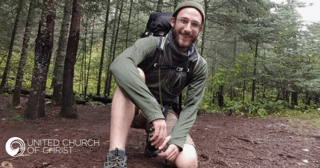DENVER — Some of the victims fighting for their lives after being wounded in last week’s Colorado theater rampage may face enormous medical bills without the benefit of health insurance.
The U.S. doesn’t have universal health coverage, though hospitals are required by federal law to stabilize patients during emergencies without regard to their ability to pay. The Obama administration’s health care overhaul would cover millions more uninsured, but Republicans strongly object to its cost.
Members of the public have contributed nearly $2 million to help victims, including the Warner Bros. studio that released the Batman movie that was showing when the gunman opened fire. But it’s not clear how much of that money will cover medical expenses.
One victim’s family is already raising money online. And three of the five hospitals treating victims said Wednesday they will limit or completely wipe out medical bills.
LONG RECOVERY
An unknown number of the victims, however, still face a long recovery and the associated medical costs without health insurance.
Nearly one in three Coloradans, or about 1.5 million, either have no health insurance or have coverage that is inadequate, according to a 2011 report by The Colorado Trust, a health care advocacy group.
The highest uninsured rate is among adults between 18 and 34. Many victims are in that age group.
NEW FATHER CRITICAL
Among the uninsured victims is a 23-year-old aspiring comic, Caleb Medley, who is in critical condition with a head wound. His wife, Katie, gave birth to their first child on Tuesday.
His family and friends said they have set a goal of raising $500,000 to cover his hospital bills and other expenses and were more than halfway there Wednesday.
Children’s Hospital Colorado announced it would use donations and its charity care fund to cover the medical expenses of the uninsured. “We are committed to supporting these families as they heal,” according to a statement from the hospital, which treated six shooting victims.
HealthOne, which owns the Medical Center of Aurora and Swedish Medical Center, also says it will limit or eliminate charges based on patients’ individual circumstances. Those hospitals have treated 22 shooting victims. However, the company cautioned its policy may not apply to all doctors working in its hospitals.
AFTER HOSPITAL
The other two hospitals, Denver Health Medical Center and University of Colorado Hospital, where Medley is, wouldn’t say whether they would assist shooting victims. However, they provided combined $750 million in free care in 2011.
The key issue is what comes after the current hospital care, said Howard Brody, director of the Institute for the Medical Humanities at the University of Texas Medical Branch in Galveston and a frequent critic of excessive medical costs.
“Many of these people, I assume, will need prolonged and expensive rehabilitation after their immediate injuries are dealt with, and that seems precisely what hospitals today are less and less willing to cover out of their own funds, and no law requires that they do so, as far as I am aware,” he said.
Associated Press writer Lindsey Tanner in Chicago contributed to this report.
Photo: Caleb Medley











No Comment